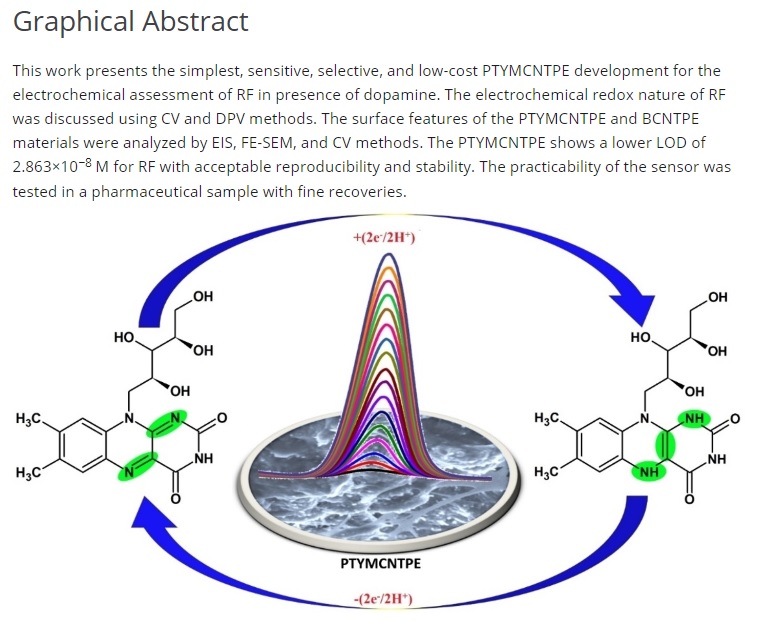Electrochemical Determination of Riboflavin using a Poly(Titan Yellow) Modified Carbon Nanotube Paste Electrode in the Presence of Dopamine

Abstract
The bare carbon nanotube paste electrode (BCNTPE) is a helpful base material for the construction of different electrometric sensors for analytical purposes. The BCNTPE was chemically modified with a polymerization process using titan yellow (TY) dye for the selective determination of riboflavin (RF) in presence of dopamine (DA). A poly(titan yellow) modified carbon nanotubes paste electrode (PTYMCNTPE) has been constructed by a simple and eco-friendly procedure. The PTYMCNTPE material surface was examined by cyclic voltammetry (CV), Field emission-scanning electron microscopy (FE-SEM), electrochemical impedance spectroscopy (EIS), and differential pulse voltammetry (DPV) methods. The outcomes suggested that the modified electrode displays high electrocatalytic action for the redox reaction of RF. The limit of detection (LOD) and limit of quantification (LOQ) for the detection of RF were found to be 2.679×10−8 M and 8.932×10−8 M, correspondingly. The proposed sensor was effectively applied for the determination of RF in a pharmaceutical sample.

The increasing demand for sustainable energy sources has spurred research into advanced energy storage technologies, with supercapacitors showing significant promise.

This investigation examined the combustion characteristics of ammonia/methanol blends under varying conditions of hydrogen enrichment, comparing direct hydrogen additon against ammonia cracking. …

The focus in recent years has been on developing innovative, green technologies for energy production and storage. Nanocomposite materials are attractive due to their exceptional performance,…

